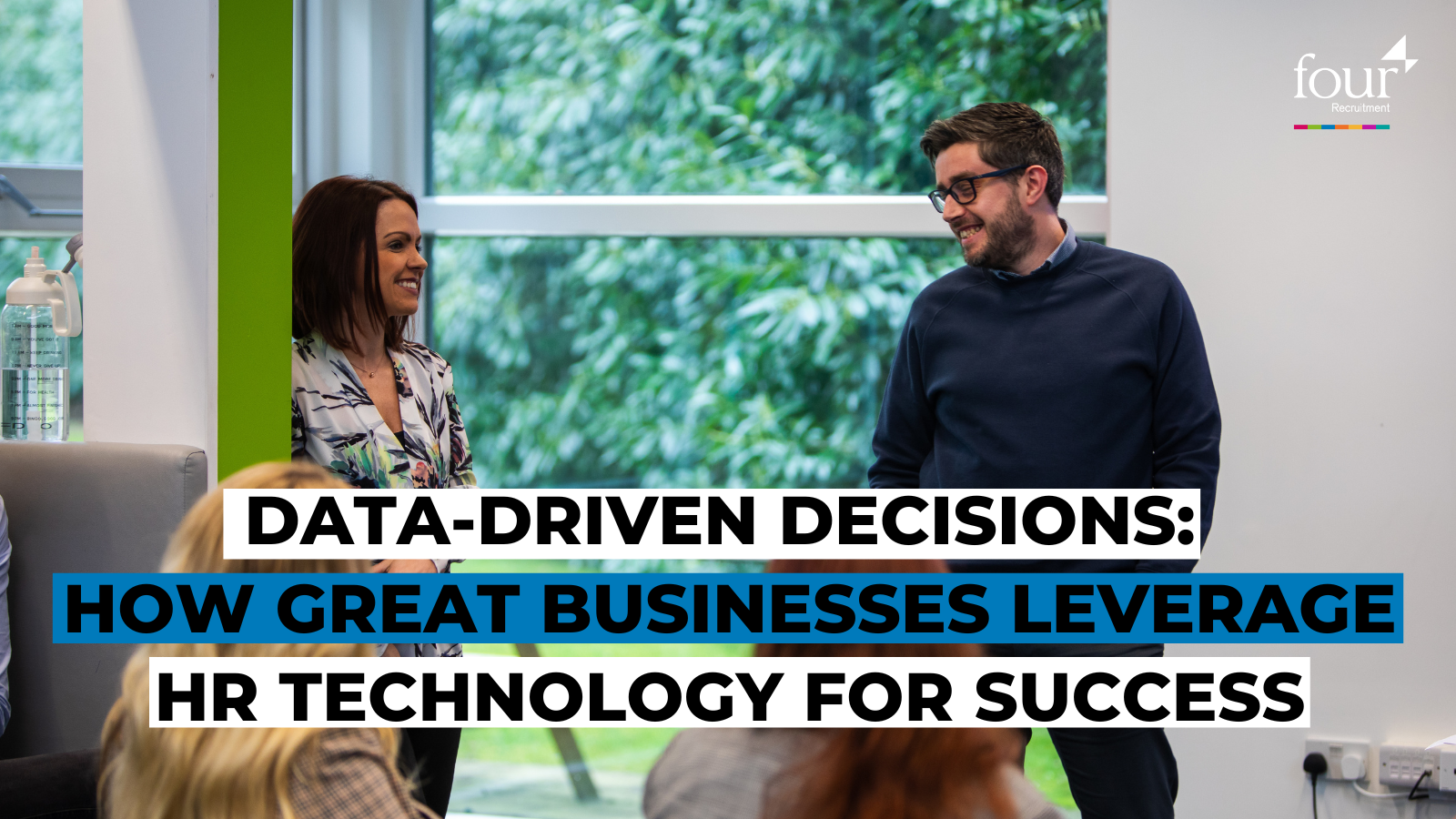.
.
.
.
.
.
.
.

Since technology was first adopted into HR applications, it has been proactively empowering leaders to engage and uplift their employees.
From executing seamless onboarding experiences to providing accurate and relevant feedback, the day-to-day use of data-driven software is paving the way for success.
In 2023, the ongoing integration of machine learning capabilities and ever-advancing algorithms is enabling HR professionals to enhance the precision of their data analysis. This allows them to gain valuable (and often crucial) insights into multiple facets of employee engagement, performance and development across their organisation.
As a result, leaders have started to move beyond the traditional “gut feel” decision-making and are making evidence-based, informed, and more effective choices. This has already had a transformational impact on workplaces, encouraging HR professionals to focus their efforts where it’s most needed. By using data-driven decision-making to improve the allocation of resources within their organisation, great businesses can cut wastage and support their employees in a more effective manner, catering to individual needs and fuelling organisational success.
“The true power of data analytics lies in its ability to align HR strategies with the organisation's overarching goals, ensuring that every initiative is anchored in real-world evidence and purpose.
This approach nurtures a culture of continuous improvement, where each decision is thoughtfully curated, fostering an environment that thrives on innovation, adaptability and progress.” - Four Recruitment
As you begin to familiarise yourself with HR technology and use it to your advantage, you’ll soon find that it goes above and beyond in terms of providing value. It not only gathers the numbers for you, but it also goes a long way in generating actionable insights that guide you to greatness.
Among its many roles, people analytics identifies skill gaps and areas for improvement. By analysing performance metrics, training completion rates and competency assessments, HR teams can comprehensively understand the organisation's talent landscape and strategically navigate the development of targeted training programmes. With the aid of these insights into specific skill gaps, HR professionals can create tailored initiatives that address individual and team needs, propelling employees to reach their potential.
Data-driven performance tracking enables HR teams to objectively assess employee performance with precision and insight. By analysing a range of key performance indicators (KPIs), HR professionals can gain a comprehensive understanding of individual contributions and team achievements; setting the stage for a performance-driven culture. Through the use of technology, each of your employees will be empowered to progress in their career, supported by a clear understanding of their current performance metrics. Soon, they’ll be able to witness a direct correlation between the effort they make and the measurable results produced.
HR teams can gain insights into each individual's unique growth journey through in-depth analysis of employee skills, interests and career aspirations. Equipped with this data-driven understanding, they can then craft tailored and targeted development plans designed to unlock each employee's potential - breathing life into a culture of engagement and motivation. The synergy between personal and organisational goals fuels a workforce invested in and empowered to take charge of their own development and bring about greatness.
4. Employee-Centric Initiatives
Detailed data analytics can also help HR teams to understand employee needs, preferences and challenges. With this detailed understanding, they can design employee-centric initiatives to enhance the overall experience. From flexible work arrangements that accommodate diverse lifestyles to extensive wellbeing programmes that boost physical and mental health, every employee initiative can be crafted to align with individual needs and aspirations. These programmes then go a long way in bolstering a sense of belonging and loyalty where employees flourish and the organisation thrives.
Beyond data analytics and effective decision-making, HR technology can also be utilised to streamline work processes, personalise employee training, and fuel exponential organisational growth.
For more guidance on utilising HR technology in today’s competitive and complex environments, contact us:
Share: